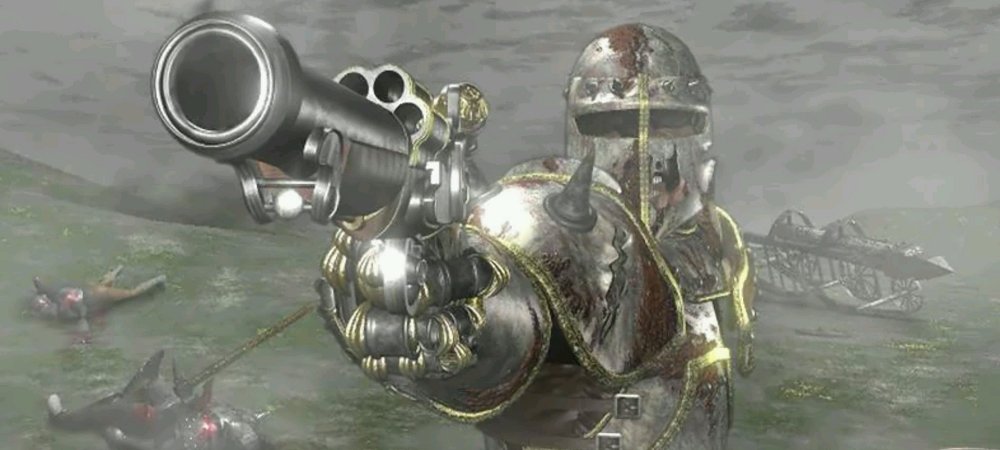More inspired by Deus Ex and Thief
Way back in 2001, gone-but-not-forgotten developer Troika released Arcanum: Of Steamworks of Magick Obscura. It was an utterly fantastic (if buggy) RPG set in a vast, strange steampunk fantasy world where the long-established magical forces were being dampened by the new industrial revolution.
This was long before steampunk became synonymous with simply whacking a few gears and some brass plating onto something and calling it done: Arcanum explored how Victorian social values would apply in a world where half-orcs and dwarves wander the streets. It also had realistic architecture and one of the greatest soundtracks of any game ever. The entire thing was fantastic, and if you haven’t played it yet you really, really should.
Unfortunately, Troika had to shut its doors a few years later due to the poor commercial performance of its games. It never released the sequel to Arcanum we were looking forward to. We’ve known that Journey to the Center of Arcanum was to be the title of it for a few years now, and we’ve also known that it was going to be a first-person RPG in the Source engine. What we didn’t know is where the game was to draw its influences from, what the story would have been, or really anything else about it.
Fast forward 14 years and RPG Codex has managed to uncover a design document of what could have been Journey to the Center of Arcanum. It was to be a game more similar to the likes of Deus Ex and Ultima Underworld than the original:
In JTCA (Journey to the Center of Arcanum), we hope to incorporate the best aspects of the most popular first-person RPG’s on the market, as well as include a new direction, one that is inherently Troika’s. If Arcanum has proved anything, it is that we know how to craft a well-balanced RPG, with memorable characters, a compelling story, and a character-development system that is second to none. The dichotomy between magick and technology gave us a perfect game environment to create an almost infinite number of playing styles, and we hope to translate that same environment into a 3-D world.
We hope to achieve a similar gaming environment as was presented in Half-Life or Deus Ex. The complexity of the levels in Half-Life, as well as the obvious care that was put into their design, created a game that was both fun and challenging at all levels. The use of puzzles and the intelligent placement of enemies helped players learn the use of the items presented to them, as well increasing their skill in items they previously had. The puzzles in JTCA would make the best use of these items, offering multiple solutions for every puzzle…
… As thieving in Arcanum very important, we hope to incorporate the best game-play mechanics of games like Thief and Thief 2. By allowing the player to move in the shadows, and to move quietly among enemies, we hope to offer a different kind of playing style than the mage, warrior or technologist. Strategy and success will be rewarded with audio and visual cues. Story elements will also support this playing style, as the Thieves Underground did in Arcanum.
This design document was confirmed to be real by ex-Troika developer Tim Cain (also of Fallout fame). Previous parts of the document describe some of the changes to the world’s lore, including the introduction of new technology that allowed it and magic to co-exist, which apparently wasn’t something Cain liked the sound of:
Yes, Troika was working on a “Journey To The Center Of Arcanum” treatment, and yes, it was going to use the Source engine.
[…] I have three or four treatments for JttCoA, and they are all different. One I remember writing, and it is full of game system ideas, for skills and attribute changes. Another is written from the basis of using the Tribes engine instead of Source. Neither of those went to publishers either. We just wrote them as a “what if?” scenario to toss around during design meetings. Drog’s [the person who released the design document to RPG Codex] document looks like one of those.
[…] So to clear things up…yes, this is a Troika doc on one possible treatment of JttCoA. I didn’t write it, but I think I know who did. I never liked the “new metal which combines magick and tech” idea, because I thought it undermined the main motif of Arcanum, but the writer liked the idea, so he wrote it up for a design meeting. The doc was never intended to be sent to a publisher, just for us to read for a meeting, but I sent it to show the fan some of the ideas we were considering.
Journey to the Center of Arcanum seems like it really could’ve been great had it ever actually happened, and now I need to go and be sad for the rest of the day that it never did. However, it’s also interesting to potentially see its influence on later games such as Troika’s Vampire The Masquerade: Bloodlines.
Seriously, Arcanum was great, and I would give any limbs required to have Journey to the Center of Arcanum happen.
Arcanum Underworld: Ultima Underworld-inspired pitch document for unmade Arcanum sequel [RPG Codex]








